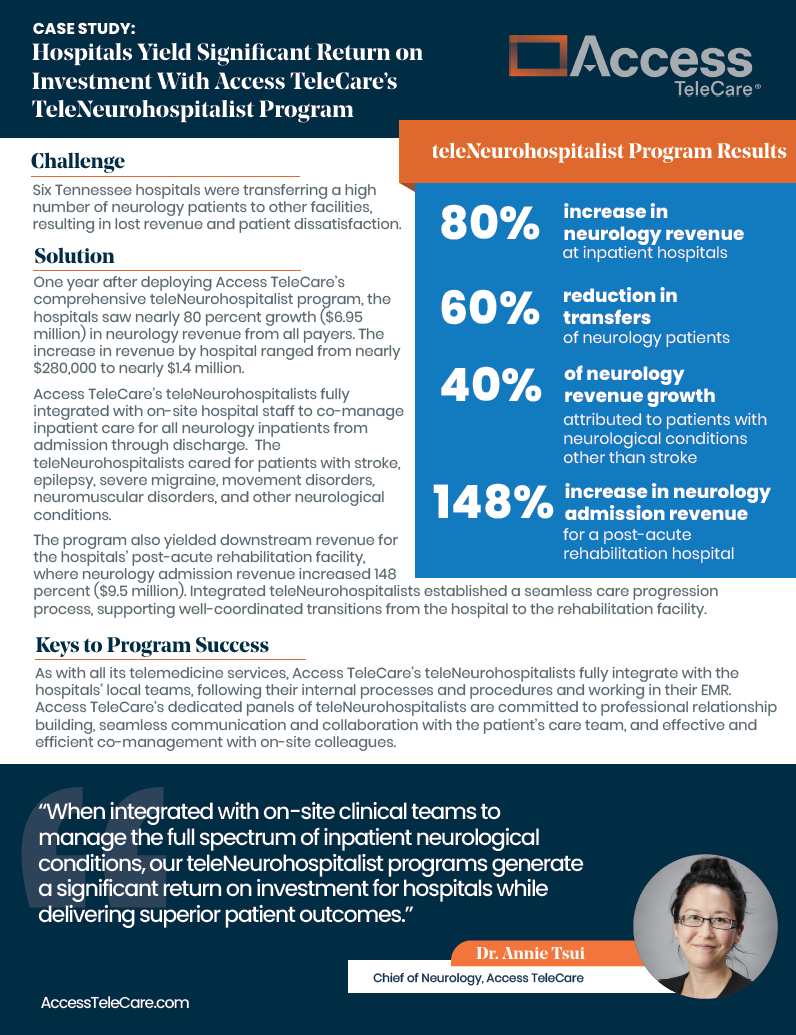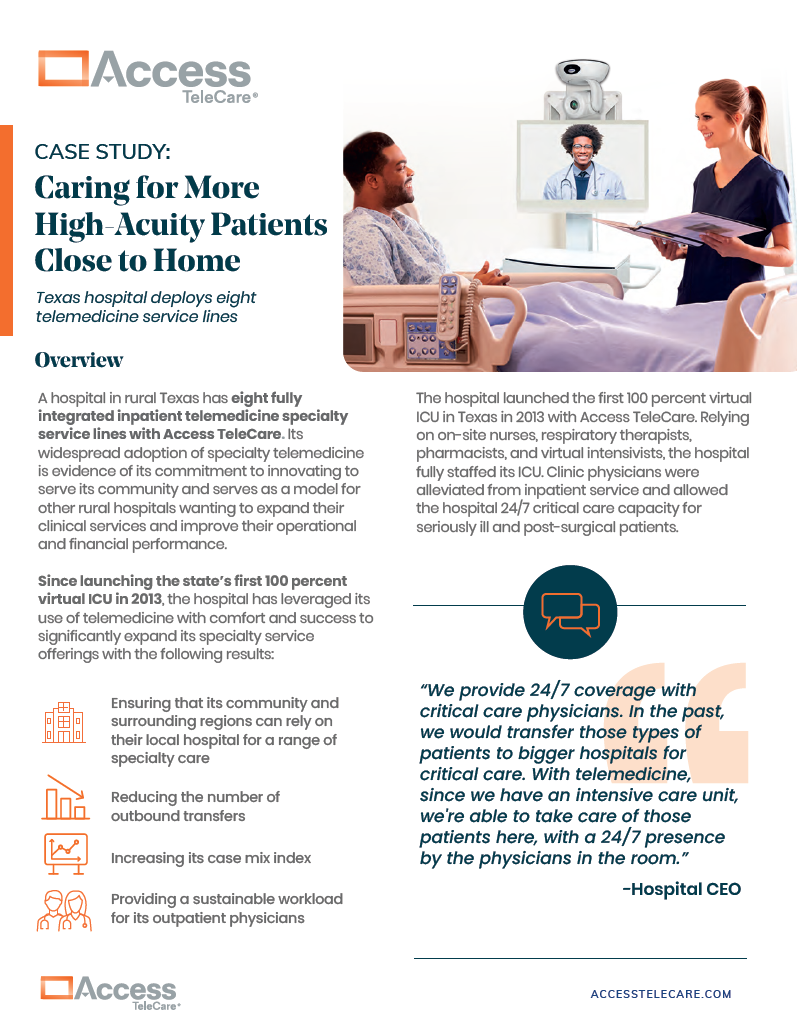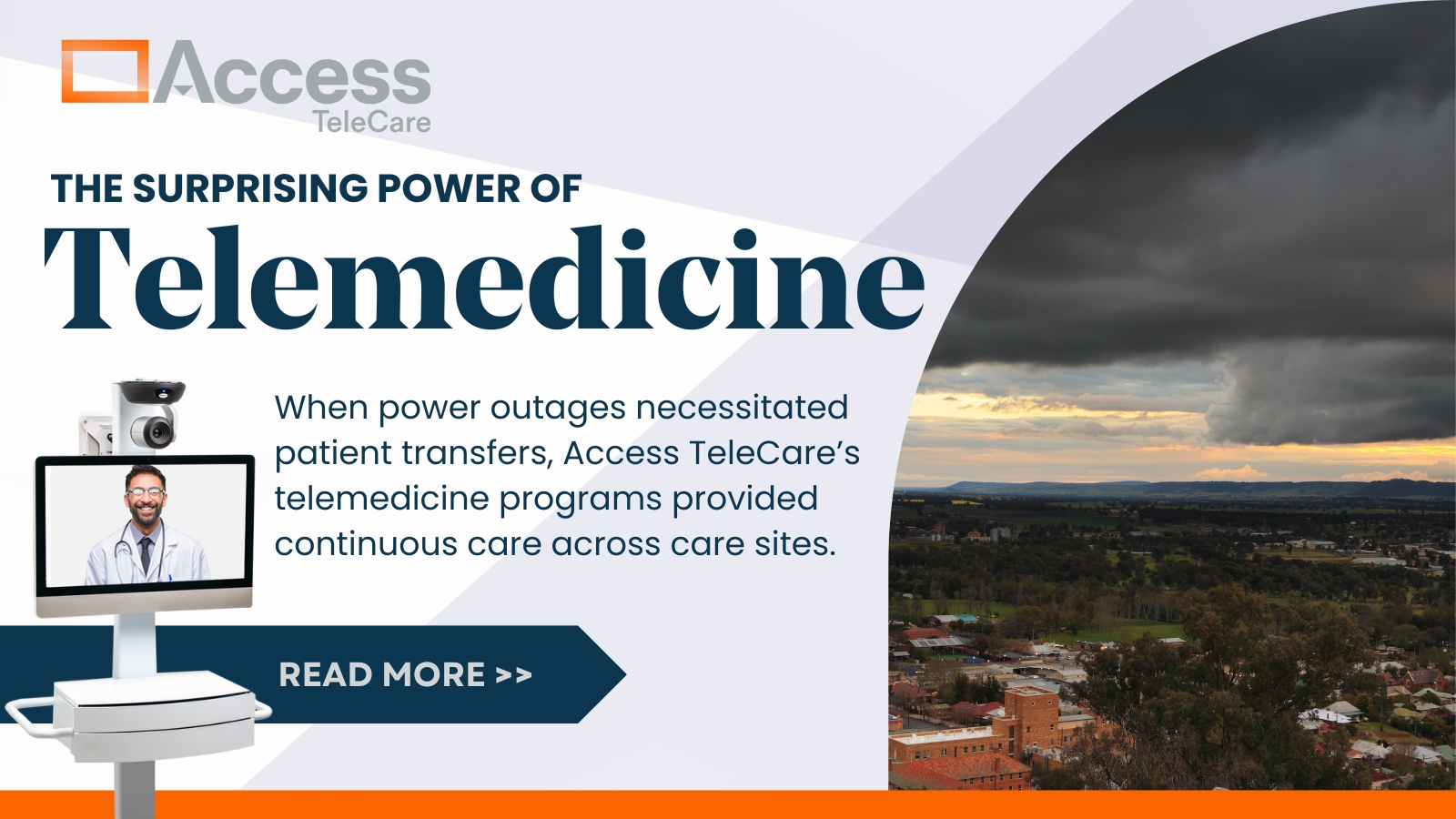Video: Strategies for Overcoming Healthcare Challenges with Telemedicine Experts
For more than two decades, Access TeleCare has operated at the forefront of virtual care delivery, advancing telemedicine as a sustainable, strategic solution for the challenges modern health care providers face. Our telemedicine programs have yielded significant results for our hospital partners and a wealth of insights into the future of health care delivery.
Webinar Key Points
Acute Telemedicine is the Answer to Hospital Financial & Staffing Challenges
Acute Telemedicine is the Answer to Hospital Financial & Staffing Challenges
Telemedicine addresses physician burnout, workforce shortages, specialist availability, access to care, and timeliness of care challenges.
Hospital-based Telemedicine Works for Both Rural & Urban Communities
Hospital-based Telemedicine Works for Both Rural & Urban Communities
Telemedicine can transform care for both rural and urban communities. The webinar focused on our neurology and behavioral health programs.Telemedicine is a Game-Changer for Acute Behavioral Health Care
Telemedicine is a Game-Changer for Acute Behavioral Health Care
ED boarding and wait times were reduced while also improving the patient experience and patient health outcomes.Neurology revenue increased 300% upon adding teleNeurology services
Neurology revenue increased 300% upon adding teleNeurology services
Timely acute stroke care, fast EEG readings, and high-quality teleNeurohospitalist services provided better care and reduced transfers, enabling patients to stay local and get care quickly.
See our Telemedicine Programs in Action
Hospitals Yield Significant ROI with Access TeleCare’s TeleNeurohospitalist Program
Access TeleCare’s teleNeurohospitalists fully integrated with on-site hospital staff to co-manage inpatient care for all neurology inpatients from admission through discharge. The teleNeurohospitalists cared for patients with stroke, epilepsy, severe migraine, movement disorders, neuromuscular disorders, and other neurological conditions.
Caring for More High-Acuity Patients Close to Home
When rural hospitals implement telemedicine, they typically have one, possibly two, service lines. This hospital in rural Texas has eight. Since launching an Access TeleCare teleICU and telePulmonary/Critical Care program in 2013, the hospital continued to expand its telemedicine services.
See more insights from Access TeleCare
How Telemedicine Enhances Patient Care: Dr. Kenny’s TelePsychiatry Case Study
Access TeleCare bridges the gap in access to psychiatric services for patients. Watch Dr. [...]
Avoiding Delays in Maternal-Fetal Care With Accurate Ultrasound Interpretation
When something is missed on an obstetrical ultrasound, patients can experience delays in care that [...]
What is Joint Commission Accreditation Like for a Virtual Hospital?
What is Joint Commission accreditation like for a virtual hospital? That is actually a [...]
Delivering Results: Access TeleCare’s telePulmonary and Critical Care Program Boosts Hospital’s CMI by 19 Percent
Access TeleCare’s telePulmonary and critical care program increased one hospital’s case mix index (CMI) by [...]
The Surprising “Power” of Telemedicine
When a severe summer storm left CHRISTUS Mother Frances Hospital – Winnsboro in rural East [...]
Delivering Up to Date Antibiotic Stewardship Programs
For the first time in almost 10 years, new guidance has been issued on the [...]


















